By Jake Howell jake.howell@utoronto.ca
Six Films To Watch At Sundance
Sundance 2014 was one of the most exciting film events in recent memory, and of the festival circuit I attend—which annually includes Cannes and TIFF—many of the films Sundancers saw a year ago are still largely in the conversation today. And that’s not just because of Boyhood: last January I saw a number of films that ultimately made my top ten or twenty of 2014, including Kumiko The Treasure Hunter, The Overnighters, Love is Strange, The Voices, Whiplash, What We Do In The Shadows, Appropriate Behavior…
I could go on. Attending Sundance this year means personally jumping through a lot of difficult hoops to make it happen, but this festival is becoming legendary—2014’s iteration eclipsed both Cannes and TIFF combined—and I simply couldn’t skip this year.
Here are just six enticing movies that I am both eager to see, and to see how they play out:
The Witch – US Dramatic
“New England in the 1630s: William and Katherine lead a devout Christian life with five children, homesteading on the edge of an impassable wilderness. When their newborn son vanishes and crops fail, the family turns on one another. Beyond their worst fears, a supernatural evil lurks in the nearby wood.”
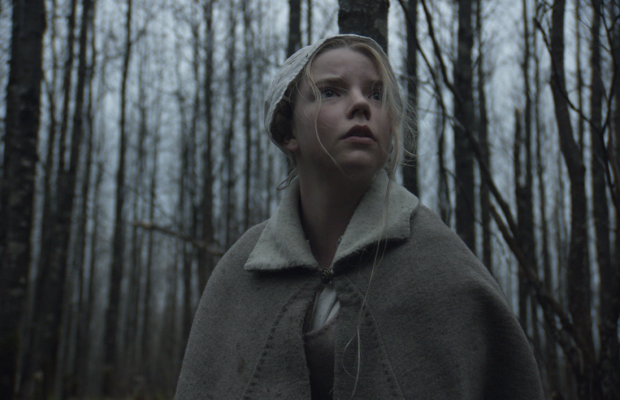
What a simple yet incredibly effective title, shortened from its original: The Witch of New Canaan Woode. Buzz from Sundance brass (namely John Cooper) on this title is shit-hot, especially as it sounds both excellently eerie and dramatically nuanced. It’s not in Sundance’s Midnight category, which means it’s probably more the latter than the former, but it still sounds pretty wild—especially since, well, when did you last see an indie film based in the 1630s? Written and directed by Robert Eggers.
Station to Station – New Frontier Films
“A high-speed road trip through modern ideas, the formally innovative film Station to Station is composed of 61 individual one-minute films that feature profiles shot before, during, and after the trip, and capture indelible moments of the journey such as Beck performing with a gospel choir in the Mojave desert.”
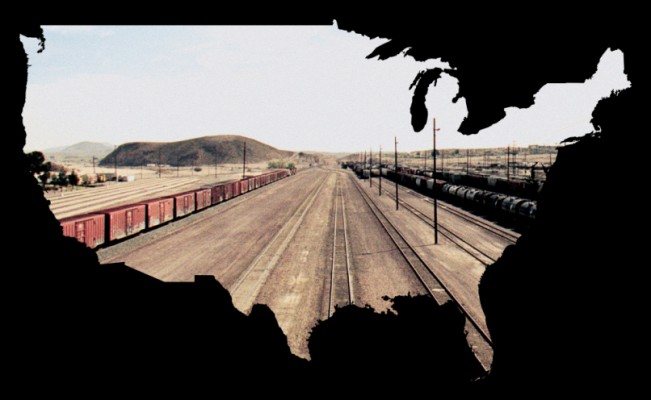
People all over the world, join hands: Doug Aitken started a love train. Station to Station sounds like the perfect film for an artistically-inspired festival like Sundance, an event which celebrates that Bohemian commitment to always chasing fresh ideas. Rocking and rolling across the United States with creativity in every caboose, Aitken invites artists, musicians, filmmakers, poets, writers, and storytellers aboard an LED-adorned locomotive to create 61 one-minute short films, linked together with the momentum of a train travelling from the Atlantic to the Pacific. At just over an hour, it sounds perfect.
The Wolfpack – US Documentary
“Locked away from society in an apartment on the Lower East Side of Manhattan, the Angulo brothers learn about the outside world through the films that they watch. Nicknamed the Wolfpack, the brothers spend their childhood re-enacting their favorite films using elaborate homemade props and costumes.”
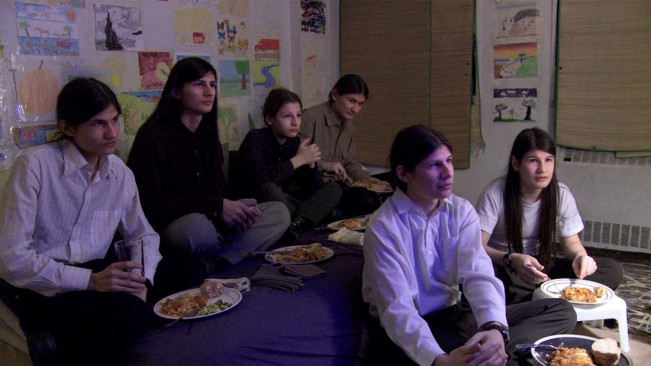
I’m just going with the hype on this one, because from the program notes alone this film sounds nuts. Aside from the really interesting irony that director Crystal Moselle has created a film about a family who re-enacts films, the idea that there’s some sort of real-life Dogtooth scenario happening in… Manhattan? Yeah, that seems way too bizarre to not investigate further.
Take Me To The River – NEXT
“Ryder, an artsy teenager, travels from California with his parents, Don and Cindy, for a family reunion in Nebraska. Upon their arrival, Ryder’s impish nine-year-old cousin, Molly, leads him to a barn to show him a bird’s nest. What happens behind barn doors makes Ryder the sudden target of suspicion and unearths a long-buried family secret.”
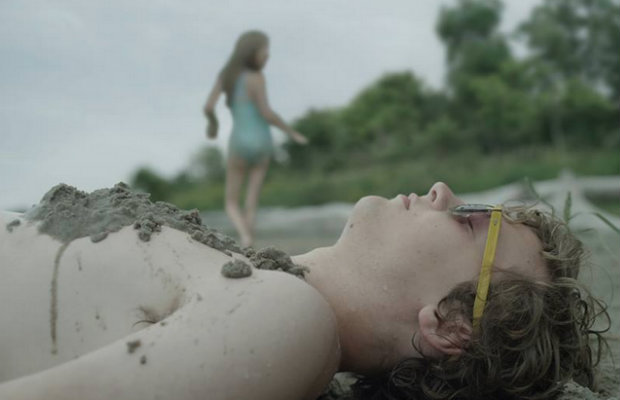
Over the past few years, Sundance’s NEXT program has been really successful in broaching evocative perspectives and presenting new voices, and Matt Sobel’s debut feature—a part of this special section—looks to have that sort of vibe from another Sundance hit, Martha Marcy May Marlene. While they’re assuredly different, Take Me To The River should surprise with its look at disturbing family dynamics, beautiful on-location photography, and a brooding tension that is invoked by breakout performances—both by Logan Miller (Ryder) and Ursula Parker (Molly), who as we know from Louis CK’s “Louie” is a seriously talented child actress. It’s the kind of film that sounds like it could really swing for the fences in its thematic ambiguity, and I’m hoping its inclusion in the NEXT program means that is does.
The Nightmare – Park City at Midnight
“Following his exploration on the deep effects of cinema in his feature Room 237, director Rodney Ascher now investigates the phenomenon of sleep paralysis. In this documentary-horror film, we experience the terror that a surprisingly large number of people suffer when they find themselves trapped between the sleeping and waking worlds every night.”
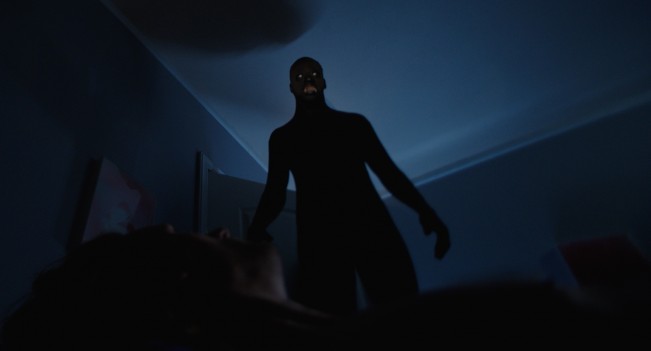
Room 237 was something else, and I really dig that Sundance didn’t describe Rodney Ascher’s previous documentary as the film about The Shining. It is, but it’s kind of not. It’s a study of cinematic obsession, which in itself can be frightening—especially given how far some fanatics can go. Ramping up the fear factor, The Nightmare is currently my number-one to see at Sundance. Have you ever experienced sleep paralysis? It happened to me maybe six months ago. I could hear someone moving my stuff in my room and pushing around my really squeaky chair beside my bed, but I was unable to open my eyes and see who—or what—was fucking with me. That feeling of helplessness vulnerability was shit-your-pants terrifying. (These types of hallucinations are associated with sleep paralysis, I promise.) Either way, I’m there.
The Diary of a Teenage Girl – US Dramatic
“Minnie Goetze is a 15-year-old aspiring comic-book artist, coming of age in the haze of the 1970s in San Francisco. Insatiably curious about the world around her, Minnie is a pretty typical teenage girl. Oh, except that she’s sleeping with her mother’s boyfriend.”
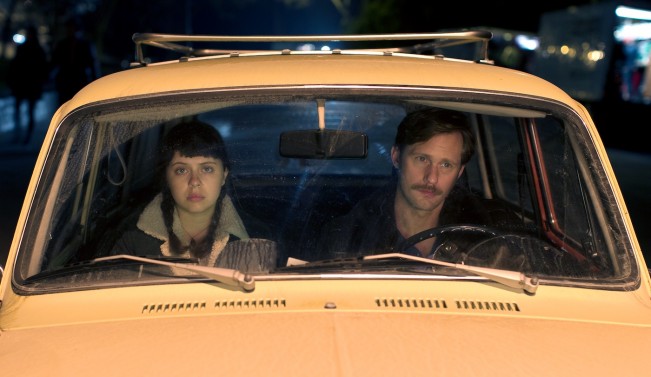
2014 was a year for movies about boys, men, boys-to-men, and man-boys. While I’m not necessarily complaining, I’m pretty eager to see something that takes us far away from that, and the possible arrival of a striking new lead in Bel Powley (Minnie)—in a film set in the wavy days of 1970’s San Fran—sounds like just the antidote. I can’t put my finger on why this film sounds as good as it does, but its inclusion of Kristen Wiig and Alexander Skarsgård definitely helps. Written and directed by debut filmmaker and actress Marielle Heller, based on the graphic novel by Phoebe Gloeckner.















